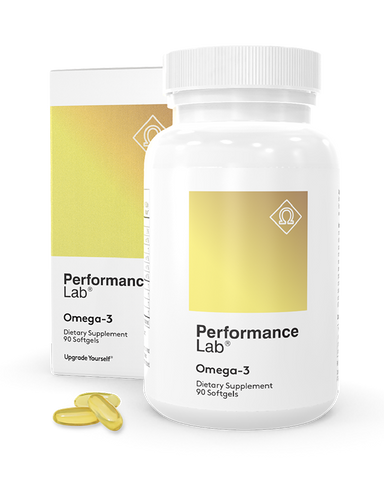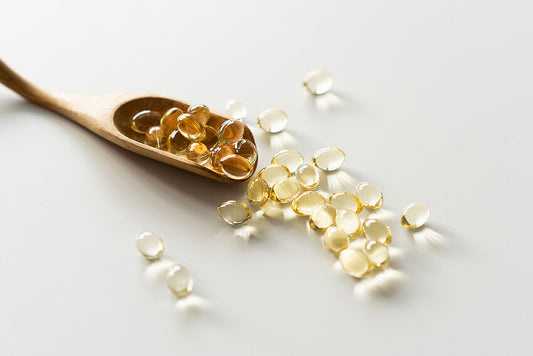In the fight against high blood pressure (hypertension), a problem affecting around 1 in 4 people, Omega-3s have been painted as superheroes.
These are some of the most important fats on the market—essential, even. Your body can’t produce them, and they definitely have some health benefits.
However, do they deserve the hype they’ve received around hypertension? Are these the good guys in heart health?
Today, we’re looking at the relationship between Omega-3 (n-3) fats and what the science says about heart health.
Blood Pressure: What’s Going On?
The villain in this story is heightened blood pressure. It’s a common contributor to a wide variety of health problems, as well as being caused by other health problems.
For that reason, it needs some serious attention. The first thing to look at is what it’s associated with and increases your risk of:
- Heart attack
- Stroke
- Heart failure
- Pneumonia
- Kidney damage and disease
- Neural degeneration
These are clearly not trivial problems. It’s a set of risks that closely mirrors the most common “natural” causes of death.
Obviously, we know they’re not entirely natural since they’re closely related to lifestyle, and we have some control over our risk profile.
That means you can change them with the things you do and eat. That’s where Omega-3 fats come onto the scene…
Omega-3: Everything You Need To Know
Omega-3 fats are essential fatty acids. Your body can’t produce them out of other fats. This means you must get omega-3 fats from your diet.
This group of essential fats breaks down into three specific types—each of which has its own role:
- ALA
- EPA
- DHA
ALA is a short-chain version of Omega-3 fats and is found in a wide variety of foods. It’s also the kind you’re likely to find in plant foods, but it’s also the least useful, and we can’t convert it into the long-chain, super useful forms: EPA and DHA.
You’re likely to get these “long-chain” omega-3 fats from seafood, primarily. This is because, unlike humans, fish and seafood take ALA from their diet and transforms it into the most important and health-beneficial types of Omega-3.
Before we even get to the main event—the battle between Omega-3 fatty acids and hypertension—you need to remember this distinction. Because Omega-3 fats aren’t all made equal, and the effects of a supplement or food source depend on which kind you’re getting.
Always go for higher concentrations of EPA and DHA. DHA, especially, is going to be the real save-the-day compound when it comes to the health benefits of fish oils.
Omega-3 vs Low Blood Pressure
N-3: Improving Triglyceride Levels Significantly
The first impact that fish oils have on blood pressure is reducing the triglycerides in the bloodstream. These are free-floating fat cells that increase blood pressure by increasing blood volume without being blood cells.
This basically means that there’s more pressure because there’s more volume, and thus changing triglyceride levels can affect your blood pressure significantly.
These changes seem to come from improving your body’s ability to regulate the amount of fats going into the blood, but might also be because of Omega-3 fats maintaining your rate of burning them as fuel. It works by preventing dysfunction in the metabolism of fats, by reducing inflammatory risks.
The upshot is simple: reducing blood volume while improving your blood-fat profile. It’s a great health benefit, but it’s also not clearly going to make significant differences to your blood pressure. Simply, it definitely does something, but it might not be enough to notice in the real world.
Improved HDL, Therefore Reduced High-Cholesterol Risks
Omega-3 fats are also going to act on the other kind of fat in your bloodstream: cholesterol. This is a scary word for many people, “cholesterol causes heart attacks, right?”.
Luckily for all of us, it’s not that simple.
Imagine cholesterol is like transport (a very exciting analogy).
If I ask you to transport 1,000 people down the motorway, you’re going to try and pack as many people into a car as possible, because that reduces traffic jams.
Cholesterol is just the same: you have high-density lipoproteins that transport lots of cholesterol while taking up very little space.
On the other hand, you’ve got low-density lipoproteins that take up a ton of space just to transport relatively little actual energy.
It should be obvious: you want high-density lipoproteins wherever possible. That’s what “good” cholesterol is, in the simplest terms.
Omega-3 fats help shift your cholesterol towards HDL, reducing blood pressure and improving your overall cholesterol profile. Again, it’s not clear if this is going to fix your blood pressure all by itself, but it’s a great mechanism and a promising benefit of fish oils.
Functional Hypertension and its Risks
There are two really interesting changes that omega-3 fats cause that are also going to affect your functional blood pressure.
This is the opposite of what we talked about before with significant real-world change. Endothelial function and nitric oxide levels change nothing about your blood or blood pressure. What they do is change how your body handles blood pressure and the surrounding risks.
Omega-3 fats improve endothelial function in arteries, which basically results in those arteries being less stiff. This is one way you can handle blood pressure—and especially changes in blood pressure—in a healthier and less risky way.
Nitric oxide changes are similar, but in the small-scale blood vessels near the surface of the skin. It improves the ability to dilate them, opening them up and improving blood flow. It’s not quite arterial reactivity, but improving capillary function is good for you.
The last change is inflammation. Omega-3s are famously anti-inflammatory, one of the best reasons to supplement them, and this applies to the health of the arteries, too.
By beating back inflammation, fish oil reduces blood pressure while also fighting horrible secondary effects like vascular collagen deposition, kidney damage, and stiffening of the arteries. This reduces the functional impacts of hypertension and how it affects your real-world risk of cardiac events.
Secondary Benefits Add Up
So, what happens when you add up the benefits of these different effects—triglycerides, cholesterol, and inflammation?
You get secondary benefits to hypertension. In other words, omega-3 fats don’t directly improve your blood pressure, but they do improve things that improve it. It’s like a fancy newton’s cradle of knock-on benefits that eventually pays up in changes to blood pressure.
It’s also not a 1-1 relationship between omega-3 fats and actual cardiovascular events. The research doesn’t make it simple: you can’t just take omega-3 fats and reduce your risk of heart issues. It’s a whole complicated bunch of interactions in your body, and it has to be a lifestyle-wide change.
What’s The Outcome?
So, the outcome should be clear by now: Omega-3 fats are a good way of reducing blood pressure and protecting yourself from a wide variety of secondary problems. These include the factors that determine functional hypertension and the relationship between blood pressure and cardiac problems.
The question on direct links between Omega-3 fats and cardiac events like heart attack and stroke is unclear.
What we do know is that it helps blood pressure, and on top of that, it carries a wide variety of health benefits that make Omega-3 fats a quality choice.
The benefits are likely to be more impressive the worse your starting position is. If you have a deficiency in Omega-3 fats (which many people do), changing back to sufficiency and then optimal levels can make a significant change.
If you’re going from sufficient to optimal, you’re going to see smaller results, but you’re also not at the same risk, so it’s good to make the change either way.
Conclusion: What’s The Risk and Reward?
Omega-3 fats are a good dietary factor in controlling your blood pressure. Avoid deficiency—use high-quality fatty fish and seafood as a primary protein and fat source and even consider supplementation.
One of the key factors to consider here is that Omega-3 supplementation can be cheap and easy. If you’re not into seafood, you can supplement either fish oil or cod liver oil, which offers an incredibly affordable option for your daily needs.
This is what I would call either an essential or a punt choice: there are significant benefits, but the cost and risk are nearly nothing. You can get 1-2 months’ supply of cod liver oil for the price of a cheap takeaway coffee.
Great for the health, and a good excuse to invest in good coffee!

References
- Hypertension prevalence: Hypertension prevalence estimates in England, 2017 (publishing.service.gov.uk)
- Hypertension is involved in half of all stroke and heart attacks: https://doi.org/10.1016/j.cophys.2020.09.016
- Inflammation and arterial damage: https://doi.org/10.1172/JCI80761
- Omega-3 fats prevent oxidative capacity decline: https://dx.doi.org/10.18632%2Faging.101210
- Omega-3 fats improve cardiovascular risk factors, specifically HDL: https://dx.doi.org/10.14740%2Fjocmr3362w















